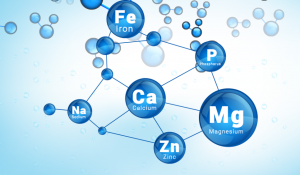Texas A&M Chemist Kim Renee Dunbar Awarded 2019 Basolo Medal for Outstanding Research in Inorganic Chemistry
Distinguished Professor of Chemistry at Texas A&M, Kim Renee Dunbar has received the 2019 Basolo Medal for Outstanding Research in Inorganic Chemistry
COLLEGE STATION , TEXAS, UNITED STATES, February 7, 2019 /EINPresswire.com/ -- The Basolo Medal is awarded annually by Northwestern University and the Chicago Section of the American Chemical Society in recognition of outstanding research in inorganic chemistry. The award is named after Frank Basolo, the late Northwestern Charles E. and Emma H. Morrison Emeritus Professor of Chemistry, who made significant contributions to the advancement of inorganic chemistry and served as President of the American Chemical Society in 1983.Kim Renee Dunbar is an internationally recognized expert on synthetic, structural and physical inorganic and bioinorganic chemistry. Much of her work, funded by the National Science Foundation, Department of Energy, the American Chemical Society-Petroleum Research Fund and the Welch Foundation, is focused on problems at the interface of materials and biological chemistry including organocyanide based functional materials, which was featured in an editorial celebrating Women in Chemistry in 2011[6]published in celebration of the International Year of Chemistry.
"I am deeply honored to receive this medal," Kim Renee Dunbar said. "The list of previous recipients include many of my inorganic chemistry idols, mentors and friends. I knew Fred Basolo quite well, and he took an interest in me when I was a young professor. He and I had many long talks, and he regaled me with stories about the history of coordination chemistry. He was a wonderful role model and an inspiration to me."
Kim Renee Dunbar joined the faculty of the Department of Chemistry of Texas A&M in 1999 after serving on the faculty at Michigan State University for 12 years where she was named a University Distinguished Professor in 2006. In 2015, Dunbar received the American Chemical Society’s (ACS) Award for Distinguished Service in the Advancement of Inorganic Chemistry, the second female recipient of the ACS’s top award for inorganic chemistry in its 52-year history and has served as an Associate editor of the ACS inorganic Chemistry journal for many years. A leader in both chemical research and education, Kim Renee Dunbar is the first female Texas A&M Former Students’ Network (WFSN) Eminent Scholar Award winner. In 2012, Dunbar was awarded an honorary doctorate degree from her undergraduate alma mater at Westminster College in New Wilmington in 2012. Prior to that, in 2004, Texas A&M named Dunbar the first Davidson Professor of Science and joint holder of the Davidson Chair in Science, meriting particular distinction as the first female chair holder in the College of Science.
Over the course of her career, Kim Renee Dunbar has contributed broadly to the development of inorganic coordination chemistry and materials science which has resulted in over 360 publications to date. Dunbar received her B.S. in Chemistry at Westminster College in 1980 followed by her Ph.D. in Inorganic Chemistry in 1984 at Purdue University with professor Richard A. Walton. Dunbar then became a Postdoctoral Research Associate in Inorganic Chemistry with F. Albert Cotton in 1985-1986 at Texas A&M University
The Fred Basolo Medal will be awarded to Kim Dunbar in the fall of 2019 when she will also give her award lecture, scheduled to be delivered during the ACS Chicago Section's meeting at Northwestern University..
Bryan Powers
Web Presence, LLC
+1 7863638515
email us here
Legal Disclaimer:
EIN Presswire provides this news content "as is" without warranty of any kind. We do not accept any responsibility or liability for the accuracy, content, images, videos, licenses, completeness, legality, or reliability of the information contained in this article. If you have any complaints or copyright issues related to this article, kindly contact the author above.

